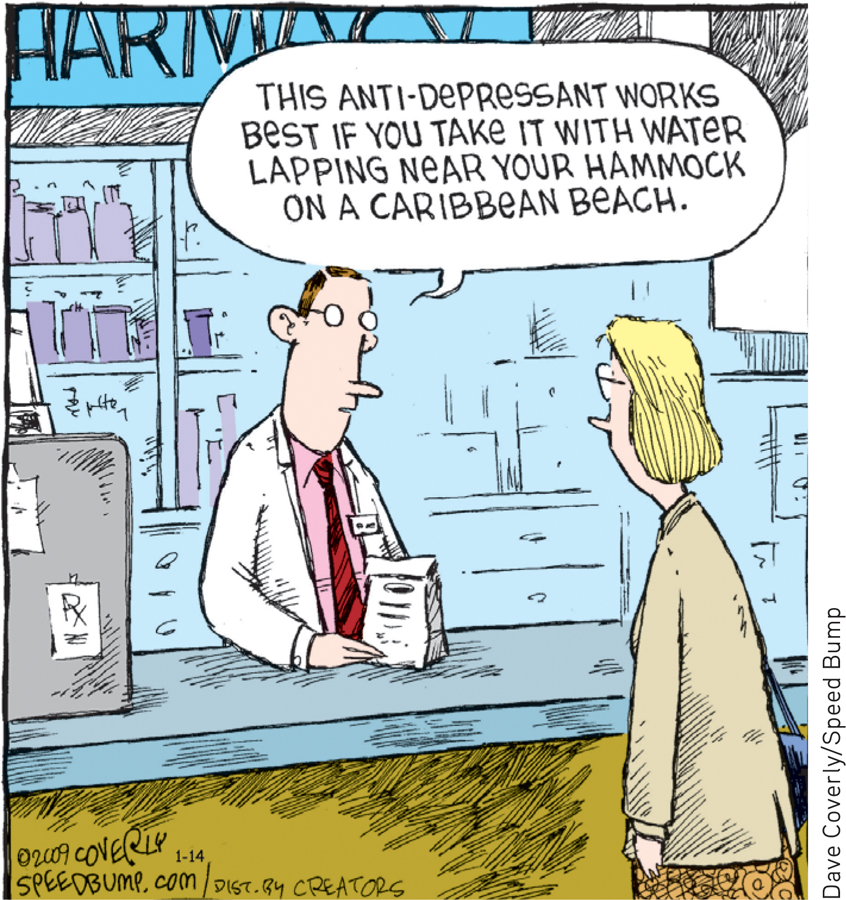56.5 Preventing Psychological Disorders and Building Resilience

56-
Psychotherapies and biomedical therapies tend to locate the cause of psychological disorders within the person. We infer that people who act cruelly must be cruel and that people who act “crazy” must be “sick.” We attach labels to such people, thereby distinguishing them from “normal” folks. It follows, then, that we try to treat “abnormal” people by giving them insight into their problems, by changing their thinking, by helping them gain control with drugs.
There is an alternative viewpoint: We could interpret many psychological disorders as understandable responses to a disturbing and stressful society. According to this view, it is not just the person who needs treatment, but also the person’s social context. Better to drain the swamps than swat the mosquitoes. Better to prevent a problem by reforming a sick situation and by developing people’s coping competencies than to wait for and treat problems.
Preventive Mental Health
“It is better to prevent than to cure.”
Peruvian folk wisdom
A story about the rescue of a drowning person from a rushing river illustrates this viewpoint: Having successfully administered first aid to the first victim, the rescuer spots another struggling person and pulls her out, too. After a half-
Preventive mental health is upstream work. It seeks to prevent psychological casualties by identifying and alleviating the conditions that cause them. As George Albee (1986; also Yoshikawa et al., 2012) pointed out, there is abundant evidence that poverty, meaningless work, constant criticism, unemployment, racism, and sexism undermine people’s sense of competence, personal control, and self-
“Mental disorders arise from physical ones, and likewise physical disorders arise from mental ones.”
The Mahabharata, 200 B.C.E.
We who care about preventing psychological casualties should, Albee contended, support programs that alleviate these demoralizing situations. We eliminated smallpox not by treating the afflicted but by inoculating the unafflicted. We conquered yellow fever by controlling mosquitoes. Preventing psychological problems means empowering those who have learned an attitude of helplessness and changing environments that breed loneliness. It means renewing fragile family ties and boosting parents’ and teachers’ skills at nurturing children’s achievements and resulting self-
Among the upstream prevention workers are community psychologists. Mindful of how people interact with their environment, they focus on creating environments that support psychological health. Through their research and social action, community psychologists aim to empower people and to enhance their competence, health, and well-
Building Resilience
We have seen that lifestyle change can help reverse some of the symptoms of psychological disorders. Might such change also prevent some disorders by building individuals’ resilience—an ability to cope with stress and recover from adversity? Faced with unforeseen trauma, most adults exhibit resilience. This was true of New Yorkers in the aftermath of the September 11 terror attacks, especially those who enjoyed supportive close relationships and who had not recently experienced other stressful events (Bonanno et al., 2007). More than 9 in 10 New Yorkers, although stunned and grief-
Struggling with challenging crises can even lead to posttraumatic growth. Many cancer survivors have reported a greater appreciation for life, more meaningful relationships, increased personal strength, changed priorities, and a richer spiritual life (Tedeschi & Calhoun, 2004). Americans who tried to make sense of the 9/11 terror attacks experienced less distress (Park et al., 2012). Out of even our worst experiences, some good can come. Through preventive efforts, such as community building and personal growth, fewer of us will fall into the rushing river of psychological disorders.
RETRIEVAL PRACTICE
- What is the difference between preventive mental health and psychological or biomedical therapy?
Psychological and biomedical therapies attempt to relieve people’s suffering from psychological disorders. Preventive mental health attempts to prevent suffering by identifying and eliminating the conditions that cause disorders.
***
If you just finished reading this book, your introduction to psychological science is completed. Our tour of psychological science has taught us much—
With every good wish in your future endeavors,
David G. Myers
www.davidmyers.org
Nathan DeWall
www.NathanDeWall.com